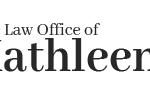
by Kathleen Lynch | Mar 16, 2016 | Innovation
Every once in awhile I come across a great inventorship story. This is the story of Jane ní Dhulchaointigh (pronounced “knee-gull-queen-tig”). A UK product designer, Jane developed a moldable glue which is sold today as Sugru.
Jane started out wanting a more effective ergonomic knife handle. Using silicone caulk and sawdust, she spent 6 years experimenting with over 5000 different variations on a moldable glue formula. Once she had attained the desired formula, Jane wanted to approach 3M to buy it. But the year was 2008 and many advised her against it.
Since necessity is the mother of invention, Jane and her team decided to launch the product themselves. They initially focused on the online craft market and used social media to help advertise their product.
What’s the take away here? Be persistent. It took Jane 6 years to develop this product and formula. Most of us would have given up after 6 hours. Also choose your advisors well and follow solid advice. Sugru’s sales skyrocketed with the strong emphasis on social media. Jane has also maintained a strong competitive advantage internationally by using the patent system.
Protecting your innovative developments is critical to any organization. Having the right person to help you make that decision is important. The Law Office of Kathleen Lynch PLLC is designed to help businesses such as yours keep ahead of the game. The first telephone consultation is free. Email us at [email protected].

by Kathleen Lynch | Nov 24, 2015 | IP Management
There was an interesting article yesterday in the Wall Street Journal about patent demand letters. These are letters sent alleging patent infringement and demanding a cessation in all infringing activity usually followed by a request for a payment. The author, Colleen Chien, proposes that sometimes the best thing to do is nothing at all.
The article discusses the tactics of patent trolls, competitors and “patent bullies” and how they may strategically pursue one or more parties for infringement. In some cases, where a patent troll or patent owner trying to test the waters may send out demand letters to obtain settlements from a number of parties. However, Ms. Chien also points out that there are times that a patent holder may want to litigate in an effort to obtain a large damage award in a jury trial.
One thing Ms. Chien doesn’t address is the merits of the demand letter. When you receive a letter alleging patent infringement, do the allegations have any merit? A “do nothing” response may set you up for a patent infringement suit that may have been avoidable.
What’s the take away here? You are better off having a patent demand letter reviewed by patent counsel to address the merits of the accusation. Then you can make an informed decision as to whether the substantive allegations in the letter deserve a response.
Protecting your innovative developments is critical to any organization. Having the right person to help you make that decision is important. The Law Office of Kathleen Lynch PLLC is designed to help businesses such as yours keep ahead of the game. The first telephone consultation is free. Email us at [email protected].

by Kathleen Lynch | Jan 29, 2015 | Entrepreneurship, Patent Prosecution, Start Up Considerations, Trademark Service Mark
Intellectual property is the life blood of many small businesses and entrepreneurial enterprises. Knowing how and what may need protection could mean the difference between success and failure. I set forth below three basic things every entrepreneur and business person should do to protect the intellectual property inherent in any organization.
- Identify your intellectual property
- Before you can protect your intellectual property assets, you need to understand what they are. Intellectual property is a bundle of legal rights. These consist essentially of patents, trademarks, copyrights and trade secrets. Patents are directed primarily to objects of manufacture (things), methods of making or doing something, designs (ornamental aspects of a thing), compositions of matter and plants. If you make devices or compositions of matter, you will likely want to determine whether your device, composition, or methodologies associated with your business may be subject to patent protection. If you make an object, you may also want to consider whether there are any ornamental aspects of your object that may be new and subject to design patent protection.
- If you use trademarks, service marks or logos in connection with the sale of your goods or services, you may want to register those marks or logos nationally or internationally. If your business involves training or educational services, any materials used may be subject to copyright protection. If your business has been successful by using particular strategies or processes that have given it a competitive edge over your competition, you may want to properly identify those strategies as trade secrets. Some methodologies used in manufacturing may be better suited to trade secret protection rather than patent protection.
- Determine whether your intellectual property can be protected
- Once you have identified what you believe to be your intellectual property, you need to determine whether it is protectable under current laws. If you believe your new widget is patentable, a patentability search and assessment is a logical next step. A patentability search and assessment will provide you with the information you need to determine whether there is any meaningful patent protection available to you. This applies to objects, as well as methods, compositions of matter, and designs. A proper patentability search will search all relevant patent records and provide you with the most pertinent documentation of the state of the relevant art. A patent professional can assist with interpreting the search results to determine the scope of patent protection likely available to your invention.
- Similarly, with a trademark or logo, an availability search and assessment is a prudent next step. This involves searching relevant records to provide you with current uses of the same or similar marks or logos. From this information, you can determine whether to proceed with a trademark or service mark registration. A trademark professional can help you make that determination.
- Protect What Intellectual Property You Can
- Once you have identified and determined what rights are available to you, you can proceed with protecting your intellectual property to maximize your competitive advantage. Patentable aspects of any objects, methods, compositions or designs should be protected. Marks or logos available for use and registration should be the subject of US or international trademark or service mark applications.
- Copyrighted materials should be marked with the “©” or “Copyright” followed by the year(s) in which the material was created and name of the owner. Trade secrets, properly identified, should be protected through a series of procedures identified by your organization to ensure confidentiality. This may include, by example, limiting access to certain information, marking documents as “confidential”, ensuring all employees understand their obligations to maintain secrecy of proprietary information, executing confidentiality agreements with third parties where proprietary information may be exchanged.
Protecting your innovative developments is critical to any organization. Having the right person to help you make that decision is important. The Law Office of Kathleen Lynch PLLC is designed to help businesses such as yours keep ahead of the game. The first telephone consultation is free. Email us at [email protected].

by Kathleen Lynch | Aug 26, 2014 | Confidentiality, Entrepreneur, Intellectual Property, Inventor, Patent, Trade Secrets
I had lunch with a colleague who is an IP attorney and an engineer. He was telling me about his participation in a start up weekend and all of the challenges and fun that he had. In hearing this, we discussed, as patent attorneys do, the consequences of disclosing ideas to a loosely held group of people whose only relationship to each other is on the back of a napkin.
Most start up weekends do not impose any obligation of confidentiality on their attendees for all that is developed and disclosed in a 48 hour period. This raised the concern that perhaps anything that is developed that may be rather meaningful, i.e. might lead to actual commercialization of a product or service, may need to be “black boxed”. In other words, the team of developers could agree to disclose only the basic outline of the structure and/or function of the development and then disclose the details of the operation once a patent application has been filed or a confidentiality agreement has been signed.
To do otherwise may jeopardize the group’s ability to seek meaningful protection which may likely translate directly into meaningful funding. The US patent system has moved to a first inventor to file system. In that system, the inventor has a year to file on the invention developed after it has been disclosed. The rest of the world essentially requires absolute novelty. So if any invention is disclosed prior to a patent filing, any international patent rights outside the US may be lost completely. This is something worth considering when venturing into a start up weekend.
One aspect of any new development is the extent of patent protection available to the ultimate product or service. If all international patent protection is lost by the close of a start up weekend as a result of disclosure, then the level of funding and any significant patent advantage may be lost. It remains that anyone involved in a start up weekend should ask the appropriate questions regarding disclosure with the organizers and raise any concerns with the team as it could impact the protection and funding of what may be developed during the weekend.
Protecting your innovative developments is critical to any start up venture. Having the right person to help you make that decision is important. The Law Office of Kathleen Lynch PLLC is designed to help businesses such as yours keep ahead of the game. The first telephone consultation is free. Email us at [email protected].

by Kathleen Lynch | Aug 19, 2014 | Entrepreneur, Patent
I am taking a break this week in my usual focus on intellectual property law, to give a shout out to the NCLEAP program here in North Carolina. I preface this by disclosing that I am an NCLEAP volunteer and sit on their steering committee.
NCLEAP (North Carolina Lawyer Entrepreneurial Assistance Program) is about a 7 year program that was established by North Carolina lawyers to provide pro bono assistance to low income entrepreneurs. Since its inception, it has assisted over 1000 entrepreneurs and small businesses. Volunteer lawyers from across the state provide low income entrepreneurs with pro bono corporate and intellectual property law advice and other legal matters relevant to a start up venture.
NCLEAP relies on donations to operate. If you are a lawyer licensed to practice in North Carolina, consider donating your time and expertise to help out a new business or entrepreneur. If you like the NCLEAP program, consider making a donation.







